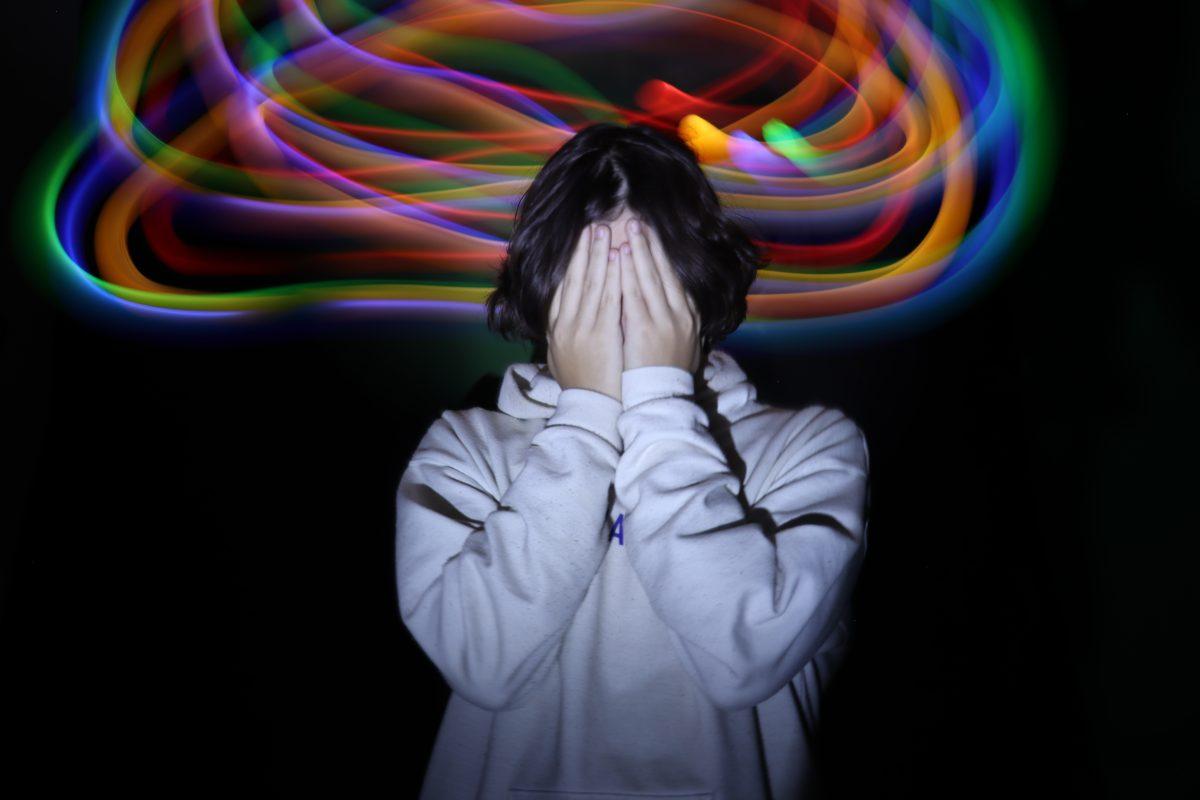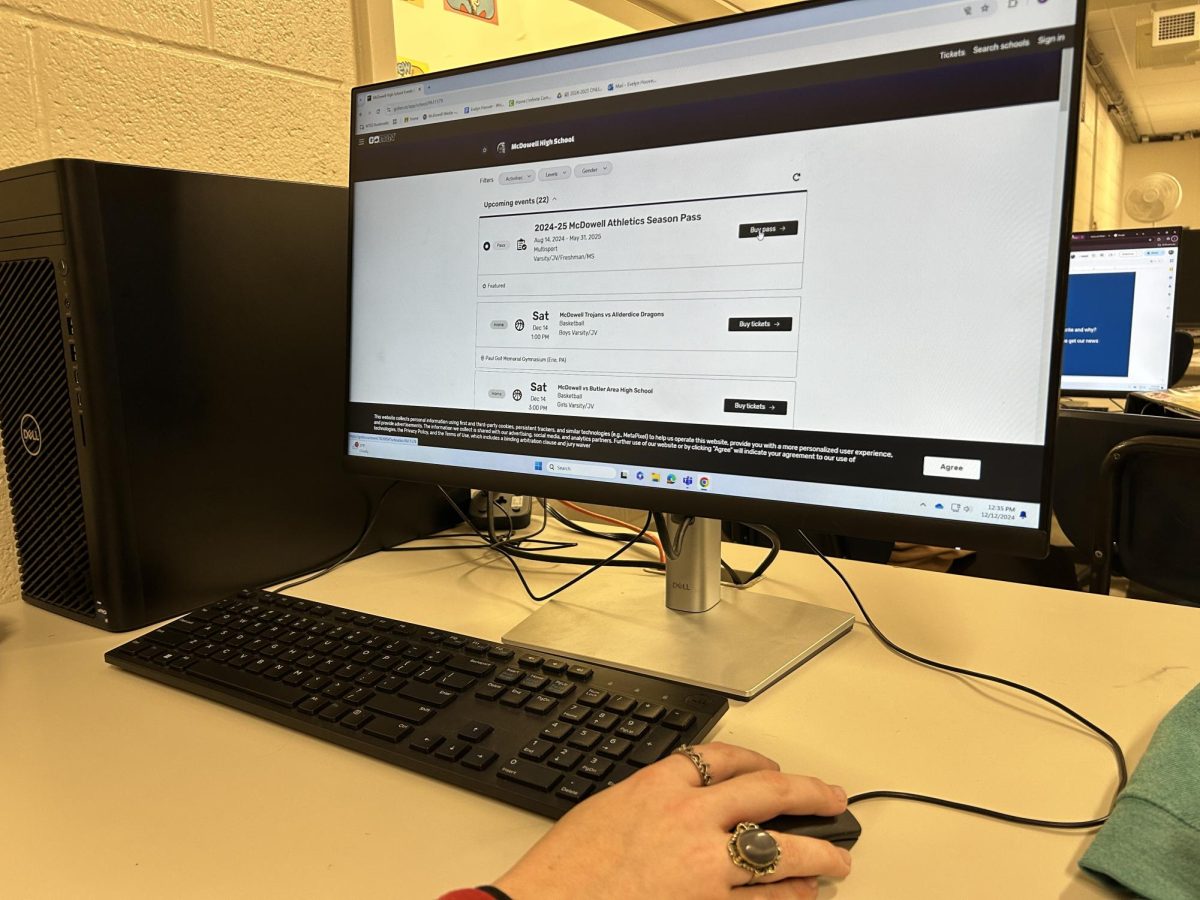By Gabby Serifini
Photography by Claire Gebhardt
There’s a slight snowfall glistening out your bedroom window. Your neighborhood is lit up with shining Christmas lights, and your family is

in town for the holidays. With all of the holiday cheer around you, you would think it would be infectious.
But, there’s an ominous, invisible weight bringing you down. Other’s eyes can’t see it, but everything inside you can feel it, and it is unable to shake. All you can do is watch the world dance happily around you, while your mind is being pulled into a different, darker place.
If this sounds familiar, you are not alone.
According to the National Alliance on Mental Illness, three in five Americans feel their mental health is negatively impacted by the holidays. Dr. Christopher Serafini, a family doctor with Allegheny Health Network, says, “Just the fact that it is the holidays is a stressor. The holidays are stereotypical, happy, joyous times, and a lot of people with mental health (problems) feel that they have to pretend to be happy and joyous when they don’t really feel that.”
It’s so easy for people who struggle with their mental health to get somewhat swept under the rug during the holidays. It’s intended to be such a happy time, but there are so many underlying issues that arise during this season that people tend to forget about.
The holidays can be a really vulnerable and sensitive time for people who are grieving loved ones, people who are having financial issues and people overwhelmed with the idea that everything has to be “perfect.” Try to think of things realistically and remember that not everything is what it seems on social media.
As Serafini said, people who aren’t finding joy in the season often feel like they have to pretend to be happy, so it might not be obvious that they are struggling. However, there are some signs that you can look out for, including, “crying, withdrawing from people or situations, misplaced anger or frustrations toward other people, sleeping a lot and poor hygiene,” Serafini said.
Beth Knight, a school nurse at McDowell Intermediate High School, suggests that everyone be aware of those around them by “being supportive, kind, thinking of others and just being there for them if they are struggling.”
Knight suggested “asking them how you can help support them and just being a friend” are ways everyone can help those dealing with issues during the holidays. Knowing that someone is there for you can make all the difference in the world and is a vital part of uplifting others, during this season.
If you are struggling yourself during this season, there’s simple practices you can try using to help make you feel better. Humans need social connection, so talking to someone about how you are feeling can possibly be the most beneficial tip. It is important to get things off your chest and lean into others for support no matter what time of the year it is.
“We can be more giving and donate, provide extra food and gifts- so it takes that burden off of families and just think of others instead of always ourselves and realize it is this time of year where it is more about the thoughts and the gifts to give to people versus what you receive.”
Beth Knight
It can also help to turn your attention outwards towards others. Knight says, “ We can be more giving and donate, provide extra food and gifts- so it takes that burden off of families and just think of others instead of always ourselves and realize it is this time of year where it is more about the thoughts and the gifts to give to people versus what you receive.”

Serafini reminds his patients that our bodies and minds work together and
both contribute to how someone feels.
“Studies have shown that taking care of our physical health and mental health together improves people’s energy, self-esteem, sleep, overall mental health, and happy productive lives,” he said.
And while the holidays are about giving to others, it is okay to give to yourself as well.
Exercise is good for the mind and body, but there are many forms of self care during the hustle and bustle of the season, for example, you can have a day dedicated to just you. Watch a comfort show, look up a craft on Pinterest, take a bath, nourish your skin with some special care, get yourself a holiday Starbucks – whatever lightens the load of your holiday bag. Your mental health is just as important as your physical health, so doing things you know will lighten your mood should be a priority.
Do not forget about your mental health resources within your community. For example, the Erie County Warm line is 1-844-749-3848. It is confidential and connects you with peers for support. This is not a ‘hotline so this is a great resource to use when you are not in a crisis and just need someone to talk to.
For 24-hour crisis support, text NEDA to 741-741. There are trained volunteers available 24/7 to contact. These are both options if you need immediate support and someone to talk to.








